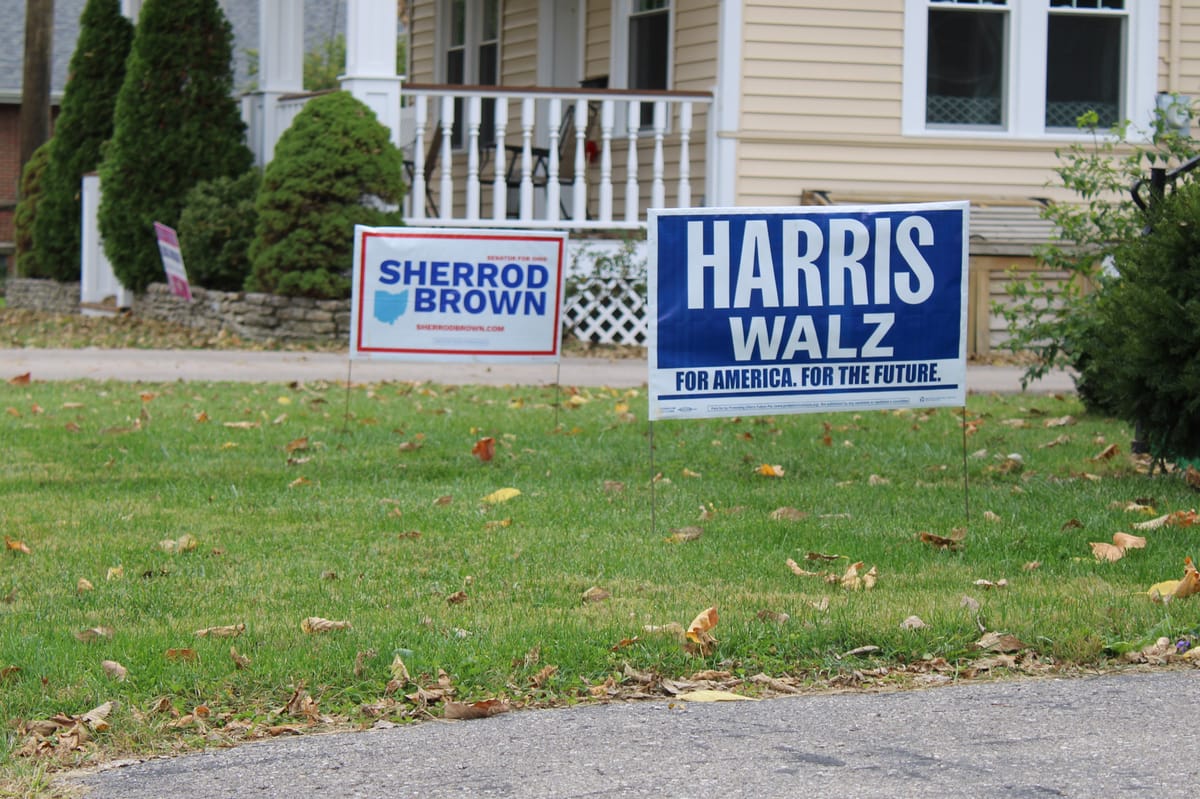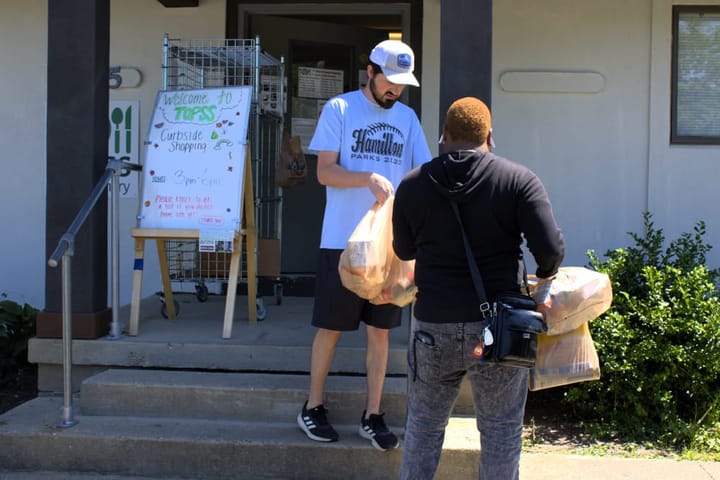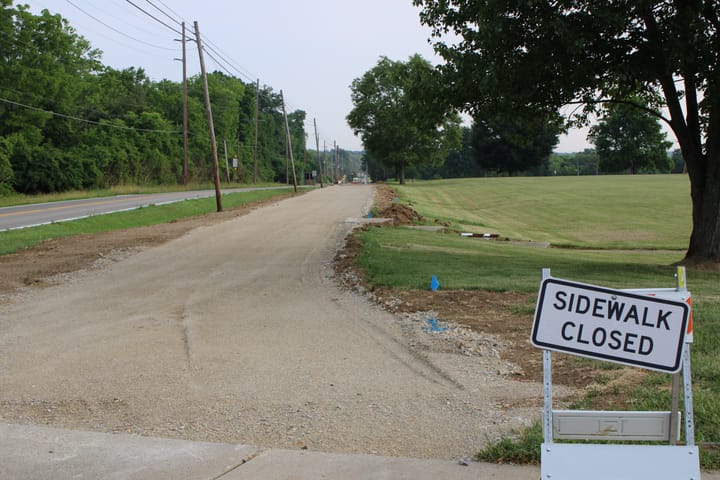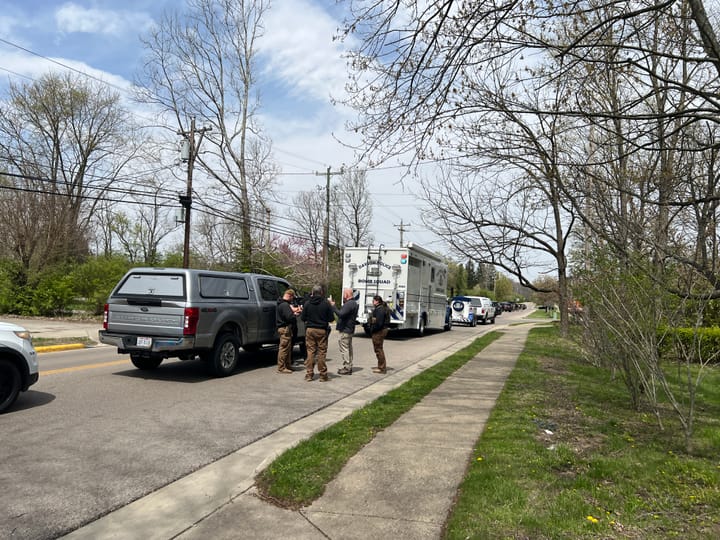As Republicans celebrate, local Democrats regroup
Democratic candidates failed to crack 40% of the vote across Butler County in this year's election. Organizers and candidates alike are looking to the future following local and national losses.

Kathy Wyenandt knows what it takes to run a Democratic campaign in Butler County.
In 2018, she ran against George Lang, now a state senator, to represent the 52nd District in Ohio’s State House. She came away with 41.6% of the vote that year, running ahead of Senator Sherrod Brown’s margins that year and ahead of every Democratic candidate on the ballot in Butler County in 2024.
Wyenandt has been a Democratic organizer for more than a decade, first getting involved locally during Barack Obama’s 2008 presidential campaign. She’s run two campaigns of her own in 2018 and 2020 and now chairs the Butler County Democratic Party.
So when former president Donald Trump won the presidency, including a wider margin in Butler County than he had in 2020, and Democrats countywide failed to reach more than 40% support in local races, Wyenandt was frustrated.
“In an election like 2024 that’s more of a wave election, all politics becomes national,” Wyenandt said. “You’re kind of governed by the national message or lack thereof.”
Like many Democrats across the state and country, Wyenandt is coming to terms with an election that proved strong for Republicans. President-elect Trump won the popular vote for the first time, while multiple U.S. Senate seats including Sherrod Brown’s in Ohio flipped red and the GOP maintained its slim majority in the House of Representatives.
On the economy, the biggest motivating factor for voters, two thirds of Ohio voters in an NBC exit poll said the national economy was poor or not so good. Of those voters, 79% backed Trump.
Wyenandt said Butler County Democrats had a significant doorknocking campaign this year, but the party’s message on economics needs to improve. Some Democrats have a tendency to talk down to people or emphasize economic metrics over the lived experiences of voters, she said, which may have caused some of the disconnect in this cycle.
“There’s a point of privilege that many of us have that … we are so secure in our hierarchy of needs that we are so concerned about all these other things, cultural things,” Wyenandt said. “We’re thinking beyond just meeting the bare minimum needs when other folks can’t get beyond that. They’re working two and three jobs.”
Tom Cooke, a Democrat who ran against incumbent State Senator George Lang, ended up with 35% of the vote in his race against incumbent State Senator George Lang — a similar margin to the rest of the contested races across the county. He didn’t expect to win, but he had hoped to crack 40% support.
Cooke, too, felt that partisan politics played an outsized role in his election loss, rather than the issues he chose to focus on.
“I was disappointed in the fact that it was obvious that most of the votes were along party lines,” Cooke said. “Issues did not seem to be a factor in the campaign, in the election, and I found that disappointing.”
Cooke focused his campaign on supporting public education by opposing school vouchers, reforming Ohio’s gun laws and protecting reproductive rights and healthcare access. Voters didn’t get to hear discussion between candidates on those issues, Cooke said, because Republican candidates didn’t attend open forums or agree to debates.
Republicans including Lang attended a Republican Party forum in October, but none of the candidates in contested races opted to attend a forum open to both parties hosted by Miami University’s Menard Center for Democracy and the Hamilton Chamber of Commerce.
“If the party doesn’t feel that they need to engage in the discourse,” Cooke said, “then there is no discourse, and that cheapens the democratic process.”
In a county with three times as many registered Republicans as Democrats, breaking through the partisan divide was a daunting task for local organizers and candidates. For Charles Ganelin, a longtime organizer and board member of the Butler County Progressive PAC, the fight can’t stop just because of the odds.
“You can/t just give in,” Ganelin said. “You can’t cave to the forces that are trying to undermine an equitable society. We’re a long, long way from an equitable society, but we have made strides, and you can never back away from it.”
Ganelin and Wyenandt both highlighted policy wins for Democrats in Butler County from 2023 ballot initiatives. Voters in Butler County narrowly supported Issue 1 last November, enshrining a limited right to abortion in Ohio’s state constitution. Issue 2, an initiative to legalize recreational marijuana, also passed in the county by a wider margin.
In the leadup to this year’s election, Ganelin helped organize canvassing efforts in northwest Butler County. He said it was energizing for the base when President Joe Biden ended his campaign, paving the way for Vice President Kamala Harris’ candidacy, but the party struggled to move past even in the polls.
Chantel Raghu, Oxford’s vice-mayor, lost her race as Democratic candidate for Butler County Commissioner this year. She’ll now serve the remainder of her second term on Oxford City Council, which runs through 2025. For Raghu, the results both locally and nationally were deflating, particularly for environmental initiatives.
“We rely on our government to keep us safe and make sure we have clean water and clean air,” Raghu said. “Kids have the ability to live up to the American dream by going through public education, so with all of those things it was a moment of deep concern.”
President-elect Trump has tapped Lee Zeldin, a New York Republican, to lead the Environmental Protection Agency, subject to confirmation. Trump has prioritized energy and environmental deregulation and floated the possibility of rescinding clean energy funds included in the Inflation Reduction Act. Trump has also named Linda McMahon, a former World Wrestling Entertainment executive, to lead the Department of Education, a department Trump and his allies want to dismantle.
Locally, Raghu said she worked hard to meet with voters across Butler County and felt weighed down by the top of the Democratic ticket because of inflation under President Biden. She also felt that her opponent, incumbent commissioner Don Dixon, had tried to tie her to national issues like the border.
Despite her own loss, Raghu said she plans to run for office again in the future, though she doesn’t know for which role. She first ran for Oxford City Council in 2017 after Trump won election the first time because she felt powerless to address federal issues, but local government was more accessible.
“It was within my power to make sure my community is as safe and as protected and as welcoming as they could be,” Raghu said. “Me being on City Council has always been this form of activism and advocacy and therapy, too … taking that anxiety that you feel about things you can’t control and channeling it into things that you can.”
For Wyenandt, the immediate next step for Democrats is to make it through the holidays with family and friends who may have different political beliefs. After that, it’s on to more local races including school board elections across the county in 2025.
In Oxford, four City Council seats will be on the ballot in a nonpartisan election in 2025, while two nonpartisan seats on the Talawanda School District Board of Education will be up for election. Candidates must file petitions with the Butler County Board of Elections no later than 90 days before the general election.




